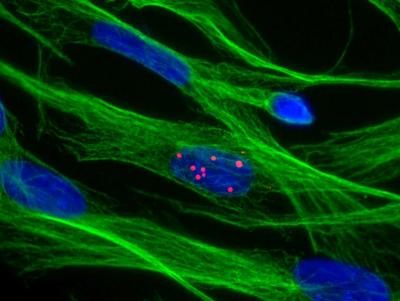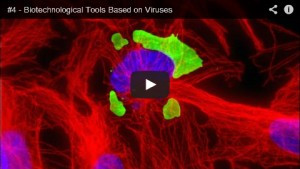 The best vaccines available are based on "inactivated virus", i.e. live viruses chemically or physically treated to eliminate their infectivity. This method involves a number of important biological hazards that require relevant safety measures. Therefore, there are many attempts to replace this kind of vaccines with lower risk options, like "subunit vaccines", which only present some viral proteins, specifically those that trigger the immune response. Thus, it would not be necessary either to work with live and/or inactivated viruses, representing a great advantage when dealing with the most dangerous virus.
The best vaccines available are based on "inactivated virus", i.e. live viruses chemically or physically treated to eliminate their infectivity. This method involves a number of important biological hazards that require relevant safety measures. Therefore, there are many attempts to replace this kind of vaccines with lower risk options, like "subunit vaccines", which only present some viral proteins, specifically those that trigger the immune response. Thus, it would not be necessary either to work with live and/or inactivated viruses, representing a great advantage when dealing with the most dangerous virus.
The main problem is that subunit vaccines are generally less immunogenic, which means that provide a lesser degree of protection. This is usually compensated for by adding other compounds - adjuvants - that boost the immune response but may cause adverse effects. An alternative to the usual adjuvants is the inclusion of antigens (proteins that activate the immune response) directly in particulate matter, that is, integrate the proteins into a microparticle.
Proven results
 The results obtained in this joint research by CiQUS and CISA have demonstrated the effectiveness of a low toxicity based subunit vaccine on the use of particulate biomaterial, whose production is cheap and safe. As a result of this work, published in the journal Antiviral Research, a particulate vaccine against bluetongue virus which causes considerable losses in sheep was obtained.
The results obtained in this joint research by CiQUS and CISA have demonstrated the effectiveness of a low toxicity based subunit vaccine on the use of particulate biomaterial, whose production is cheap and safe. As a result of this work, published in the journal Antiviral Research, a particulate vaccine against bluetongue virus which causes considerable losses in sheep was obtained.
Starting from the technology developed and patented, CiQUS researchers expressed inside insect cells microspheres incorporating some virus proteins - the antigen-, and which are very easily purified to obtain the vaccine. Its effectiveness was verified by immunizing mice with only three proteins of bluetongue virus, incorporated in those microspheres. The vaccine fully protected them fagainst the infection with the same serotype of virus, and partly protected them against a different serotype, generating a protective immune response (so-called effective immunization) without the addition of adjuvants. On the other hand, no mice that had been vaccinated only with the viral proteins survived.
The main advantage of this vaccine technology is its relatively low cost compared to other types of subunit vaccines. It would reduce the need for costly biosafety facilities for the production of vaccines, the microspheres are extremely stable, their production and purification is cheap and they are easy to handle and store. This technology could be applied as well in the search for vaccines against viruses that cause very serious diseases in humans, whose danger not only hinders the investigation, but also discourages the use of inactivated vaccines.
Under the direction of Professor José M. Martínez-Costas (CiQUS) and Dr. Javier Ortego (CISA), the research team carrying out the investigation was divided into two groups: on one side, Professor Javier Benavente, Iria-Romero Otero and Rebecca Menaya-Vargas, members of the Molecular Virology Group (CIQUS) and on the other, CISA researchers where animal tests were performed: Alejandro Marín-López, Francisco de la Poza and Eva Calvo-Pinilla.
The Molecular Virology Group studies the molecular biology of avian reovirus and its potential biotechnological applications. Based on this work, they have developed and patented this protein-tagging technology platform, which they are currently adapting to other expression systems studies the molecular biology of avian reovirus and its potential biotechnological applications. The system that could be also used for purifying active proteins in immobilized or soluble form, detecting intracellular associations between proteins in the cytoplasm and/or nucleus of eukaryotic living cells, modifying the intracellular localization of cytoplasmic or nuclear proteins by their association with their inclusion-immobilized known ligands. Additionally, the system could be the basis for the development of a new concept of antivirals.


